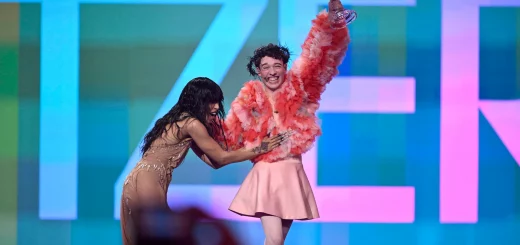Eurovision 2025 in hot water: MEPs call for transparency as voting irregularities raise eyebrows

Once upon a time, Eurovision was about music, sequins and the occasional key change. But the 2025 edition seems to have hit a rather more dissonant note. In a twist more dramatic than a Balkan ballad, 13 Members of the European Parliament from across the continent have sent a formal letter to the EBU, expressing serious concern over alleged voting irregularities and politically-tinged promotional campaigns.
And no, this isn’t a subplot from a Nordic noir. This is Brussels calling — and they’re not awarding any douze points.
A tale of televotes and state support
MEPs from Spain, France, Slovenia, Ireland, Greece, Cyprus and Finland are now openly questioning whether this year’s Eurovision was truly as democratic as its televoting promises. Their letter cites troubling discrepancies between public voting data and the final results — the kind of gaps that make you wonder if the votes were counted or just wished upon.
In particular, the Flemish broadcaster VRT has flagged “marked and inexplicable disparities” between audience engagement and actual vote counts in the period 2023–2025. RTVE in Spain, meanwhile, has called for a full audit of the Spanish televote.
Ah, the romance of numbers and democracy.
The Israel question — and the invisible line between art and agenda
Then there’s the sticky matter of Israel’s entry. According to the MEPs, Israel’s Government Advertising Agency (Lapam) was directly involved in funding and orchestrating a multi-platform promotional campaign for its 2025 participant — a move that doesn’t sit particularly well with Eurovision’s supposed code of political neutrality.
Even more eyebrow-raising: in 2024, the Israeli Ministry of Foreign Affairs reportedly ran its own promotional campaign. If this continues, we may need to rename the contest The United Nations’ Got Talent.
Independence: not just a chorus lyric
The EBU’s own rules clearly state that national broadcasters must remain independent and non-partisan. Ironically, this was the very argument the EBU used to defend Israel’s continued participation earlier this year. Now, it seems, those words are coming back like a particularly bad verse in a second semi-final.
The MEPs have proposed what one might call a reasonable Eurovision reform agenda:
- Full disclosure of voting results by country and method
- An independent audit of televotes
- Clear restrictions on state-funded promo campaigns
- Transparent sponsorship agreements
- A voting system overhaul to prevent any undue influence
Or, as they put it: a polite call for less nonsense, please.
Curtain call or open investigation?
Slovenian MEP Matjaž Nemec even took to social media to ask whether Eurovision has now become “state propaganda with a melody.” Which, to be fair, sounds like something a jury in semi-final 2 might still award 7 points to.
From Spain, Ana Miranda (BNG) and Vicent Marzà (Compromís) have co-signed the letter. And as tensions rise faster than a modulated final chorus, the real question is: will the EBU take meaningful action, or simply wheel out more confetti?
Because if Europe can’t trust Eurovision, what’s next? A rigged Bake Off?
Source: RTVE


